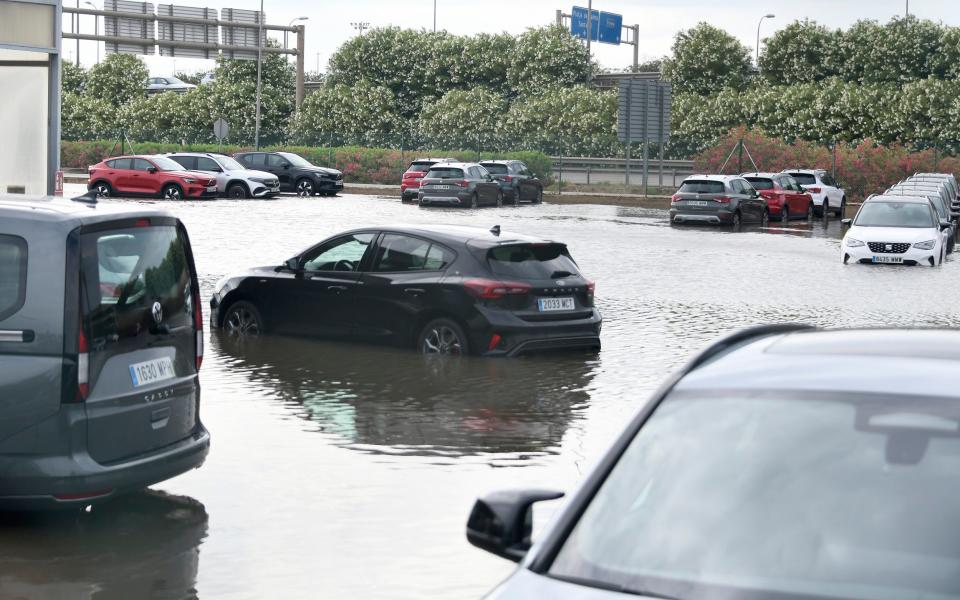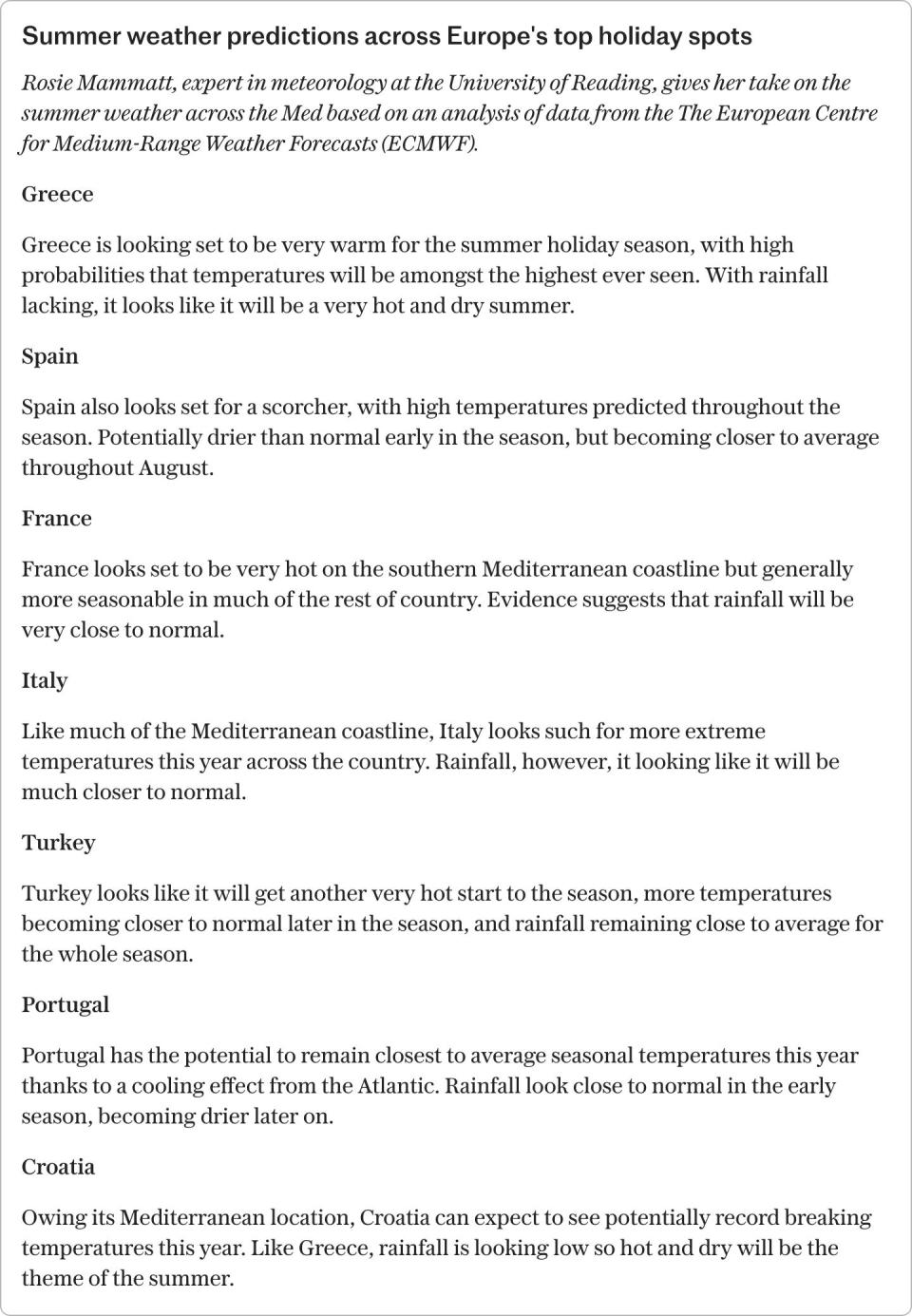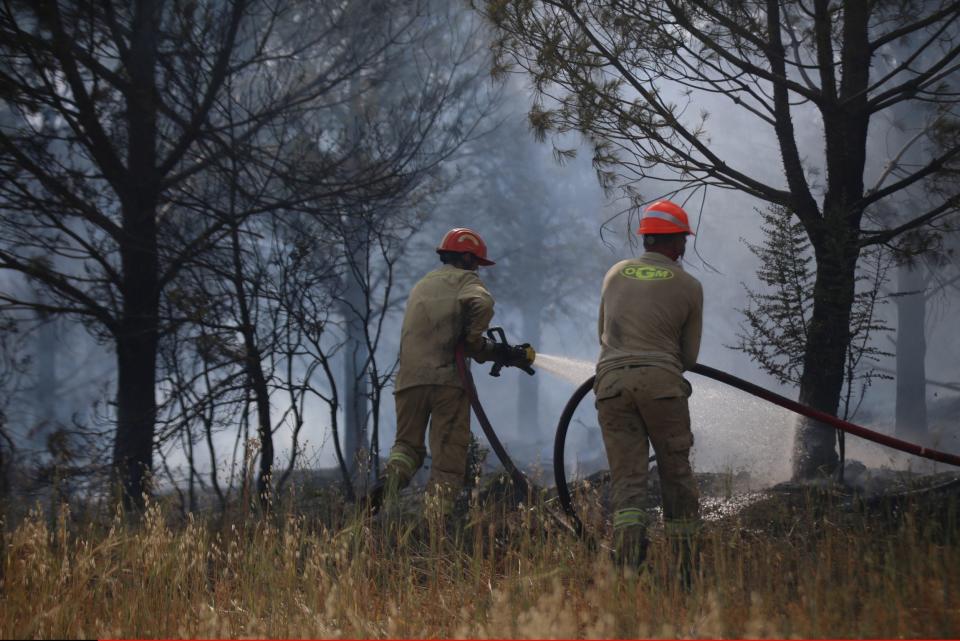Holidaymakers told to prepare for ‘record breaking temperatures’ in Europe this summer

The extreme weather conditions across the Mediterranean have arrived earlier than usual this year, with heatwaves in Greece, Cyprus and Turkey and severe flooding in Mallorca. And some weather experts say this could be the start of a sweltering summer ahead.
Greece is enduring its earliest ever heatwave, with 43C temperatures recorded at central and southern weather stations this week. In Greece a heatwave is defined as a period of temperatures exceeding 38C.
The unseasonal heatwave, caused by southerly winds bringing heat and dust from North Africa, has prompted authorities to shut schools and nurseries, along with popular tourist attractions like the Acropolis in Athens.

“This heatwave will go down in history,” meteorologist Panos Giannopoulos told the Greek state television channel, ERT. “In the 20th century we never had a heatwave before June 19. We have had several in the 21st century, but none before June 15.”
In Turkey, temperatures are 8 to 12 degrees higher than the seasonal norm. The high temperatures have exacerbated wildfires across the country, one of which engulfed the Olympos Resort in Antalya’s Kumluca, where wooden houses burned within a matter of hours, according to Euronews. In Cyprus, which is also experiencing high temperatures, three villages in the Paphos district were evacuated as wildfires spread rapidly across dry grassland.
The hot conditions across Europe come as the UK experiences unseasonably cool temperatures, with the mercury down an average of two degrees compared to expected temperatures for the month.
Meanwhile, Majorca’s airport, Spain’s third biggest, had to shut on June 11 after torrential rain flooded the runways and penetrated the terminal buildings. The storms and heavy rains were caused by a kind of slow-moving storm, known as a “depresión aislada en niveles altos” (DANA), which followed a period of high temperatures in Spain.

Much of this will remind holidaymakers of recent summers. Last July, the mercury exceeded 40 degrees across large swathes of the Mediterranean, prompting wildfires which were particularly extreme in Greece, including the popular holiday island of Rhodes.
While it is impossible for forecasters to pinpoint an accurate weather forecast for the school summer holiday season this far in advance, seasonal forecasting – based on regional trends, monthly indicators and regional meteorological offices – can give us a good idea of what to expect.

What weather can we expect in the Med this summer?
The Copernicus Climate Change Service’s (C3S) mid-range seasonal forecast (covering July, August and September) says that we may see extremes at either end of the Continent, with the Med set to experience hotter than average temperatures while northern Scotland and Scandinavia will be more wet than usual.
“The latter part of the European summer is likely to be warmer than average everywhere (with above-normal chance of exceeding the 80th percentile of climatology for seasonal means), drier than average in the south and wetter than average in the far north,” they say.
This tallies with the predictions made by Weather & Radar, who tell us: “We can say that July 2024 is looking above-average for much of Europe, particularly Spain, however that could just be a few days of hot weather that skew the average, followed by roughly around or below-average temperatures.”
And Rosie Mammatt, a PHD expert at the University of Reading, concurs, too: “We are already seeing very hot temperatures in the Mediterranean basin, and it looks like the summer could provide some more record breaking temperatures,” she predicts.

The sea will feel warmer
C3S predicts higher than average temperatures over the coming months. “The June-initialised forecasts continue the signal seen in earlier forecasts for higher-than-average sea surface temperature in the next six months, in most ocean basins with the notable exception of regions in the equatorial Pacific and the Southern Ocean. The former is associated with the predicted likely development of La Niña conditions later in the year.”
And these warm seas, in turn, will also have an impact on temperatures and rainfall, says Mammatt: “Sea surface temperatures in the Atlantic have been extremely high for a significant period of time, which has been influencing the weather we are getting. This will continue to affect temperatures and precipitation over Europe this summer,” she says.
Wildfires will make headlines again
Wildfires are not unusual across European countries during the summer months, but the summer of 2023 saw a greater number of larger fires for an extended period. According to C3S, the cumulative burnt area across Europe in 2023 was the fourth biggest on record, at 500,000 hectares. Already, wildfires are burning across parts of southern and south-eastern Europe.
Given that the three-month seasonal forecast for Europe anticipates warmer, dryer conditions, it is likely that the summer of 2024 will bring more wildfires. However, Mammatt predicts it may not be as severe as 2023: “It looks like it will be less dry than last year, but with low rainfall expected in some areas, the risk of wildfires is still apparent.”

An extreme hurricane season lies on the horizon
Mammatt says some indicators show we may experience a powerful hurricane season in 2024.
“It has been predicted that it is likely to be a very active hurricane season, due in part to these high sea surface temperatures. Last summer, we were in an El Niño phase, which suppressed hurricane development. This year, we are coming back into a La Niña phase which means we have more favourable hurricane formation conditions.
“Whilst the hurricanes themselves will hit countries on the over side of the Atlantic, ex-hurricanes have the capability to track back across the ocean and bring heavy rain and strong winds to Europe. However, this is very uncertain as it is partly reliant on the position of the jet stream, which is much harder to predict in advance,” Mammatt adds.
I am anxious about my holiday, can I cancel?
The Foreign Office has not updated its travel warnings to Greece, Turkey, Cyprus or Spain as a result of the recent extreme weather patterns.
ATOL-protected tour operators must offer a refund or reschedule your holiday if there are “extraordinary” or “unavoidable” circumstances which will significantly alter the nature of your holiday.
At present, the hot weather, wildfires and heavy rains do not represent extraordinary or unavoidable circumstances, and therefore it is unlikely that you would be given a refund or option to reschedule your holiday. However, bear in mind you can transfer your holiday to somebody else for a nominal fee.
Failing that, if you really don’t want to proceed with your getaway package, you may wish to call your agent or operator to see if you can change the dates, although given that we don’t have an accurate forecast for the summer holidays, there is nothing to say you won’t be postponing your holiday from a perfectly pleasant week to one with unfavourable conditions. So hold tight, for now.


